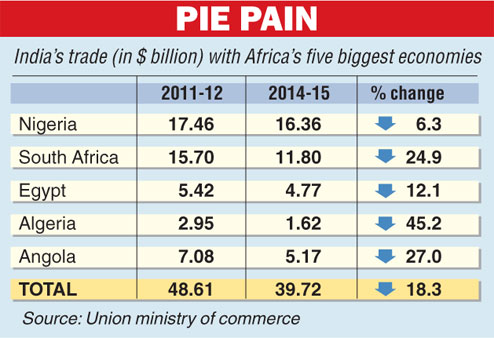
London, Jan. 29: The widow of a distinguished Indian academic has dismissed claims made by a feminist Labour politician that her late husband offered her a better degree in return for sex.
The charge has been levelled by former Labour party deputy leader, Harriet Harman, against T.V. Sathyamurthy, who was a lecturer in politics at York University when she was an undergraduate in the early 1970s.
"It was worse than that, he threatened to lower my marks if I didn't sleep with him," she alleged.
In her memoirs, A Woman's Work, which is being published this week by Allen Lane, Harman said she rejected the offer from her "totally repulsive" tutor but still managed to get a 2:1.
Harman, whom journalists have found notoriously protective of her private life over the years, has been accused of either inventing or exaggerating what really happened in order to promote sales of her book.
Also, ahead of her busy nationwide tour to talk about her book, Sathyamurthy's widow, Carole Satyamurti - she uses a different spelling for her surname and has had her own career as a poet and sociology lecturer - hit back at Harman.
Although she had separated from her husband - the couple had a daughter - she defended her husband's reputation. "That's horrible," she said of the allegations. "I find this very hard to believe. The story sounds very dubious to me."
"He was very brilliant and full of jokes but very respectful of women," she added. "I'm sure he wouldn't have done that."
Harman's critics have dug up an interview she did with Lynn Barber for The Guardian in 1998 when the journalist, known for her feisty style, observed: "She knows she has a problem with interviews. She thinks it is because she is 'prickly' but a better epithet might be snotty."
Readers of Harman's memoirs are in no position to judge whether she is telling the truth about Sathyamurthy. But many are offended that she has made the allegations when he cannot answer back.
"The idea put about by some that I am making a fuss about it now because I am a feminist is completely ridiculous," Harman insisted. "It's things like this that make women like me feminists."
Sathyamurthy was one of the most influential professors of his generation who was much loved by his students. He was a frequent contributor to the Economic & Political Weekly, writing on subjects as varied as New Europe Contradictions and Continuities; Nationalism in the Era of Globalisation; Hindu Nationalism in Indian Politics; and Role of China in International Relations.
When he died in August 1998, aged 68, after a 30-year career at York University, The Independent ran a long obituary notice on him. It said that Tennalur Vengara Sathyamurthy, born in Madras in October 1929, "was a larger-than-life personality" and "the originator, sustainer and editor of the landmark series Social Change and Political Discourse in India (1994-96) which refocused understanding of the political culture of the subcontinent".
"His intellectual span was remarkable; included in the range were developmental studies, international relations, political anthropology and extensive area studies," it went on.
It added: "Sathyamurthy's intellectual and political affiliations were broadly Marxist. His sympathy for the downtrodden and his contempt for the shams of the self-satisfied were heartfelt and abiding."
It concluded: "Although Sathya gained widespread recognition in many parts of the world, his elevation to a chair at York in 1996 took decades; his Inaugural Lecture was also a Valedictory Address. In the last phase of his career he went from strength to strength. His sudden death was a shock to all who knew him; he was genial, active and engaged with the world to the end."











